Over seven years ago, on 2 November 2017, Jacob van Berkel delivered his inaugural lecture titled Delta Power: The Symbiosis of Energy and Water, which explored the potential of tidal energy in Zeeland. The first project of the newly established research group was Playing with Currents, which focused on deploying a turbine developed by Van Berkel that could both pump water and generate electricity. Much has changed in the seven years since. The research group has grown significantly, and tidal energy now plays virtually no role in the delta.
The research group has shifted its focus to offshore wind, hydrogen, and heat. A key principle in this transition is system integration, where all components work together, from energy generation to transport and consumption.
We met with four researchers at the Joint Research Center Zeeland (JRCZ) who have joined the research group in recent years. Their projects provide a clear picture of Delta Power’s evolution. Several projects receive funding from the Just Transition Fund (JTF), a fund aimed at supporting Europe’s transition to climate neutrality.
Flexintensity
The energy transition presents a significant challenge for the Zeeland delta due to the presence of many energy-intensive industries. At the same time, the potential for sustainability is high, thanks to the large offshore wind farms. The challenge lies in matching the fluctuating supply of wind energy with the continuous demand of industrial processes.
The FlexIntensity project investigates technologies and methods to achieve this, in collaboration with a consortium of businesses and research institutions. Lecturer-researcher Collin Bohncke explains Delta Power’s role: “We explore ways to prevent the electricity grid from becoming overloaded (grid congestion, editor), which can force the shutdown of wind power when there is excess supply. That would be a real waste.”
He is currently developing a model of Zeeland’s electricity grid at high- and medium-voltage levels. Using historical data, years with both high and low wind and solar energy production he will identify bottlenecks. Bohncke explains how congestion can be alleviated: “We can investigate whether certain businesses can be more flexible in their energy consumption or consider using an electrolyser to convert surplus electricity into hydrogen.” However, he stresses that the solution must be economically viable in the long term: “It has to make good business sense.”
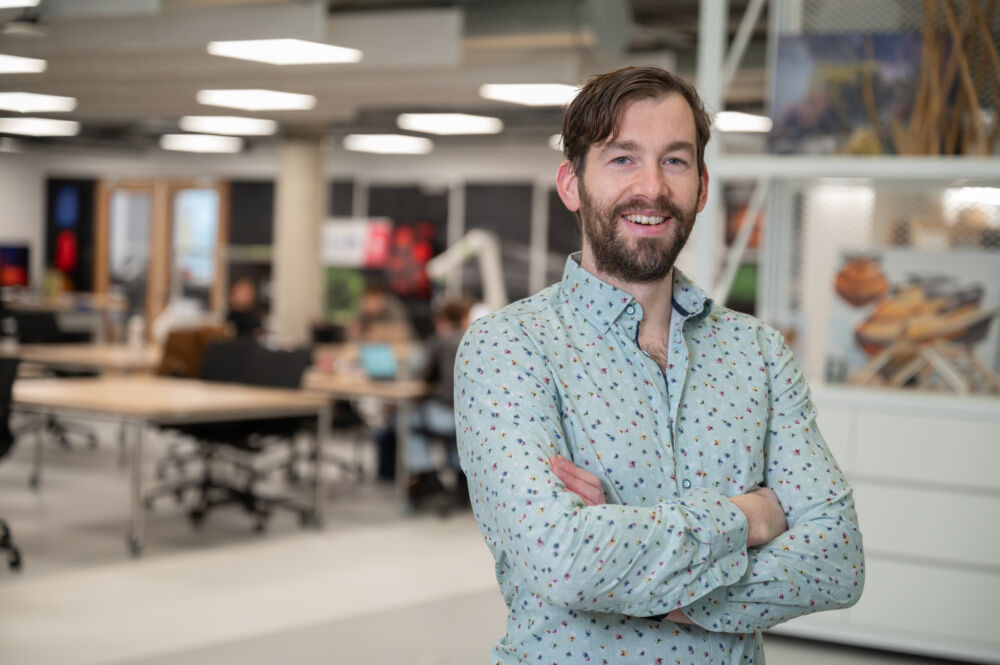
Hydrogen Lab
Hydrogen is a key pillar of the energy transition. It serves not only as an energy carrier but also as a raw material for industries such as fertiliser production. A third of the Netherlands’ substantial hydrogen consumption occurs in the Zeeland region. Currently, hydrogen is produced from fossil fuels, primarily natural gas, creating what is known as grey hydrogen. Producing green hydrogen using renewable energy offers significant climate benefits, as one kilogram of grey hydrogen results in nine kilograms of CO₂ emissions. The role of hydrogen is set to expand, increasing the demand for skilled technicians.
To address this, a hydrogen lab has been established in Vlissingen, repurposing the former environmental lab of the Water Management programme. According to lecturer-researcher Roel Tolle, it took some time, but the lab was officially launched a few months ago: “We had to figure out a lot ourselves, about safety, for instance, and the permissible quantities we could work with.” Tolle and his colleagues gradually equipped the lab: “We started with a few electrolysis setups from chemistry. Then, we added a fuel cell with a power output of 1.2 kW, which we later upgraded to a 5 kW model. We use it for the hydrogen-powered boat, and we also have a small hydrogen car.”
Students measure the efficiency and consumption of the production equipment. How much electricity is needed to produce hydrogen and how much energy it then yields. Tolle emphasises the need to train students in working with hydrogen: “Companies implementing hydrogen technology develop the necessary expertise themselves, but they also stress the importance of education in familiarising future employees with it early on.”
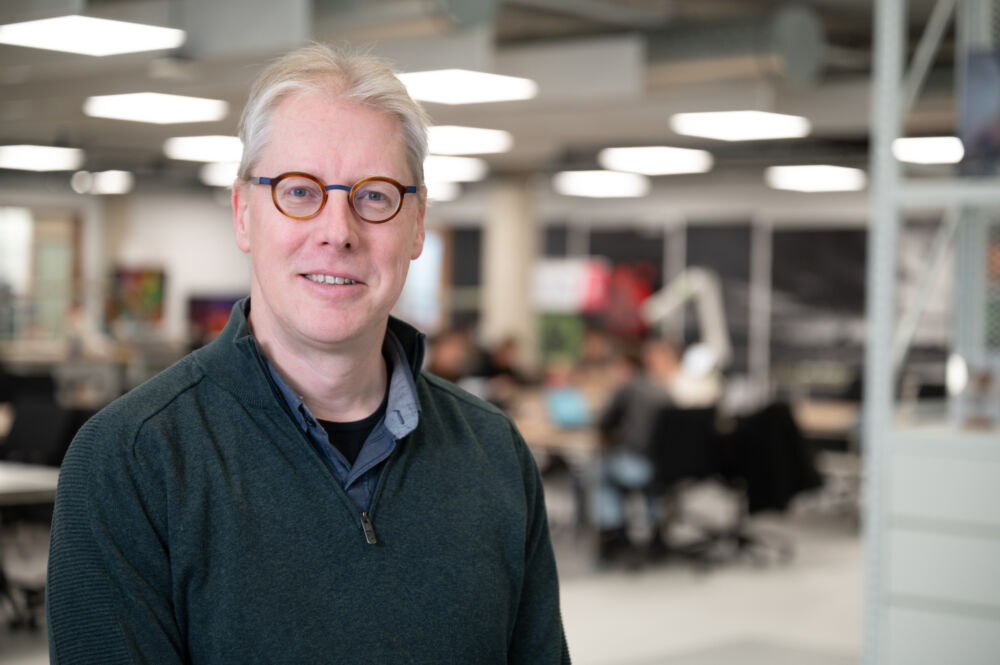
District heating
The District Heating project examines ten existing district heating networks in Zeeland and Belgium. In a district heating network, residual heat from industry is used to heat homes, but it is also applied in agriculture (greenhouses) and transferred from one industrial company to another. Lecturer-researcher Meisam Farrokhifar explains how he and his colleagues are approaching the project: "Initially, ten different cases will be studied and evaluated, followed by interviews with the relevant stakeholders and, additionally, a comparison with several waste heat projects in the Rotterdam region." The aim is to develop an optimised process description that can be used in future waste heat projects. According to Farrokhifar, the research combines modelling, optimisation, and the integration of insights gained from the interviews. The results will be shared at a conference and incorporated into education.
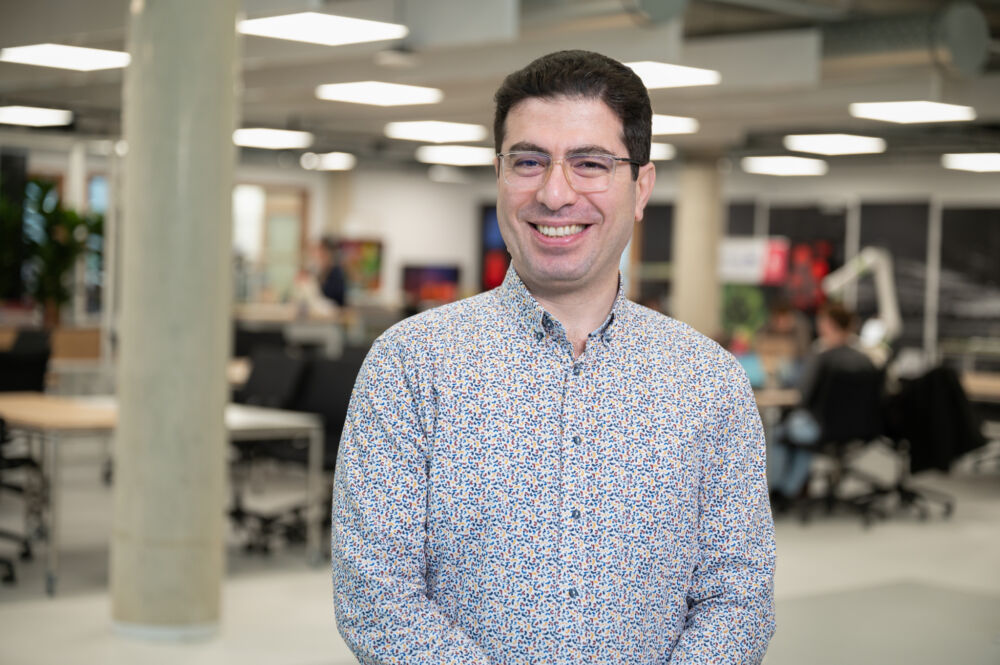
Heat transition
Well-trained professionals are also essential for the heat transition. The objective of the Heat Transition project is to develop comprehensive education in heat technology, covering both vocational (MBO) and higher education (HBO) levels. Lecturer-researcher Herman van der Bent effortlessly lists the various technologies involved: "It includes technical processes related to waste heat, sustainable steam, heat monitoring, aquathermal energy, solar thermal energy, heat pump technology, cooling systems, and heat storage."
The Zeeland business sector provides case studies on these technologies, and a demonstration setup is created for each technology to support education. Some are housed in the Hydrogen Lab, while others are in the pilot plant at Scalda in Terneuzen. A teaching module is being developed for each technology. At present, Van der Bent is in discussions with educational programmes that are interested in integrating these modules into their curricula. "Each programme has its own requirements for the modules and a different time in the academic year when the module fits in. It all needs to fit together neatly."
This includes courses such as Engineering, Architecture, and *Global Project and Change Management (GPCM)*, as well as programmes at Scalda. Looking ahead, Van der Bent foresees further interest: "Maritime courses have expressed interest, and *Technum* in Vlissingen also offers programmes where the modules could be relevant."
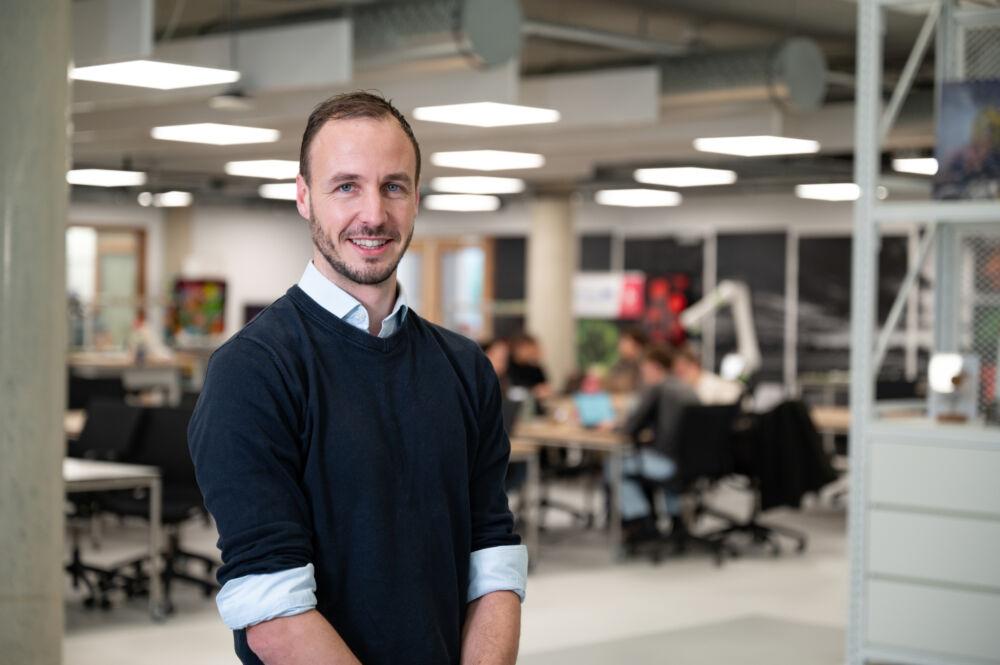
The future
The focus of research has thus shifted from energy from water to energy from wind. When asked whether the name Delta Power still applies, the researchers are clear: a delta is located by the sea, meaning wind energy is readily available. Moreover, deltas are often home to heavy, energy-intensive industries, which shape the research direction of the Delta Power research group. "I am also thinking about nuclear energy," says Van der Bent. "But that could also be part of a separate research group."
A second version of the renowned turbine designed by Jacob van Berkel stands in an adjacent room at the JRCZ, where the interview takes place. It is still used for teaching students from Scalda and HZ. Tolle believes the technology could still find applications: "Perhaps not here, but in locations with a greater tidal range."
The researchers
Collin Bohncke was born and raised in Middelburg. He works two days a week for Delta Power and three at UCR. A chemist by training, he mainly focuses on hydrogen research for HZ and works on chemistry, robotics, and electronics at UCR. Bohncke is also an avid rower.
Roel Tolle has been with Delta Power for three years. Prior to that, he spent sixteen years working at an engineering firm, where he frequently interacted with interns. That experience motivated him to apply for his current role. HZ felt like coming home to him, as he had previously studied General Operational Technology there.
Meisam Farrokhifar earned his PhD in Electrical Engineering at Politecnico di Milano, specialising in energy systems. He is an expert in energy management and energy storage. He has worked as a senior researcher at various universities and research institutes and has also gained experience in the industry. Farrokhifar has been living in the Netherlands for more than seven years.
Herman van der Bent has been working at the research group for a year and a half, three days a week. He obtained his PhD from TU Delft on the topic of sustainable renovation of social housing. Van der Bent appreciates HZ as an employer, as it allows him to balance his work with raising young children at home.
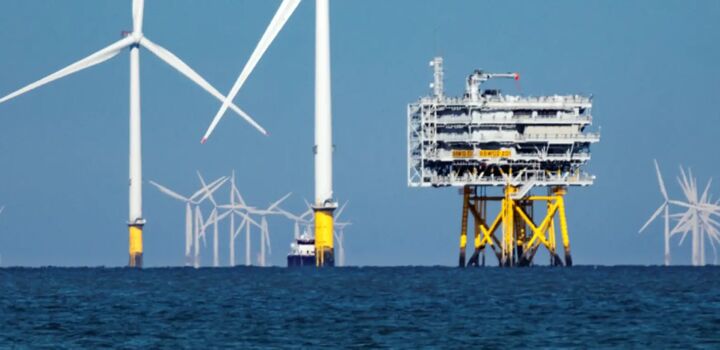
Read more about the lectorate Delta Power
The Delta Power lectureship researches the potential of delta regions for sustainable energy generation and storage.
Read more about Delta Power